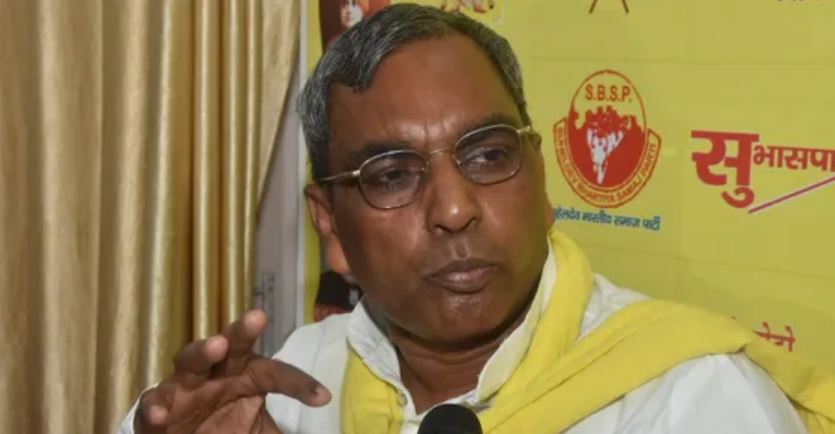Suheldev Bhartiya Samaj Party (SBSP) president Om Prakash Rajbhar came up with the most bizarre power-sharing formula for UP, months before the 2022 Uttar Pradesh assembly Election. Rajbhar’s party is part of Bhagidari Sankalp Morcha, which is a coalition of 10 parties. He clearly stated that there will be five different chief ministers in five years: one Muslim, one Rajbhar, one Chauhan, one Kushwaha, and one Patel and four deputy CMs in a year and 20 in five years.
Rajbhar’s power-sharing agenda displays a sort of instability although he states, “We are clear that everyone will be treated equally in the coalition.” He expressed confidence in Bhagidari Sanklalp Morcha’s ability to secure a comfortable victory in the UP polls.
Rajbhar was earlier an ally and member of the NDA until 2019 when he resigned from the Yogi Adityanath government. Last month he called the BJP “a sinking boat”. Earlier this week he even dismissed All India Majlis-e-Ittehadul Muslimeen (AIMIM) president Asaduddin Owaisi’s claim of contesting 100 seats in the UP polls. “There have been no talks of seat-sharing with the AIMIM,” said Rajbhar.
According to an ABP-C Voter survey conducted in March earlier this year, if elections were to held now, BJP would storm into power once again. The BJP is projected to win 289 seats in the 403-seat Uttar Pradesh Assembly. Meanwhile, SP is projected to be the second-largest party with 59 seats followed by BSP with 38 seats but not posing any real challenge to the BJP, as reported by TFI.
The Rajbhar community constitutes around 20 percent of the population and is concentrated in eastern Uttar Pradesh. Rajbhar claimed his coalition will contest the election from all 403 seats in the state and “win more than 300 seats and form the government”.
Rajbhar is a firm believer that the caste system is the reality of today’s society and all parties contest the elections based on this system. The outcome of this strange power-sharing plan to govern the state is unknown, disguised in the name of inclusivity.
For the uninitiated, in the 2017 Assembly polls, BJP managed to receive a gigantic mandate by securing a 41.4 per cent vote share, which translated to the party winning 325 seats in a 403-member state assembly. Nobody had anticipated such a huge wave of Yogi Adityanath in the state and the opposition and detractors were left dumbfounded at the magnitude of the victory. Thus, there is no doubt that Yogi is storming back to power, the only question is, by what margin?
